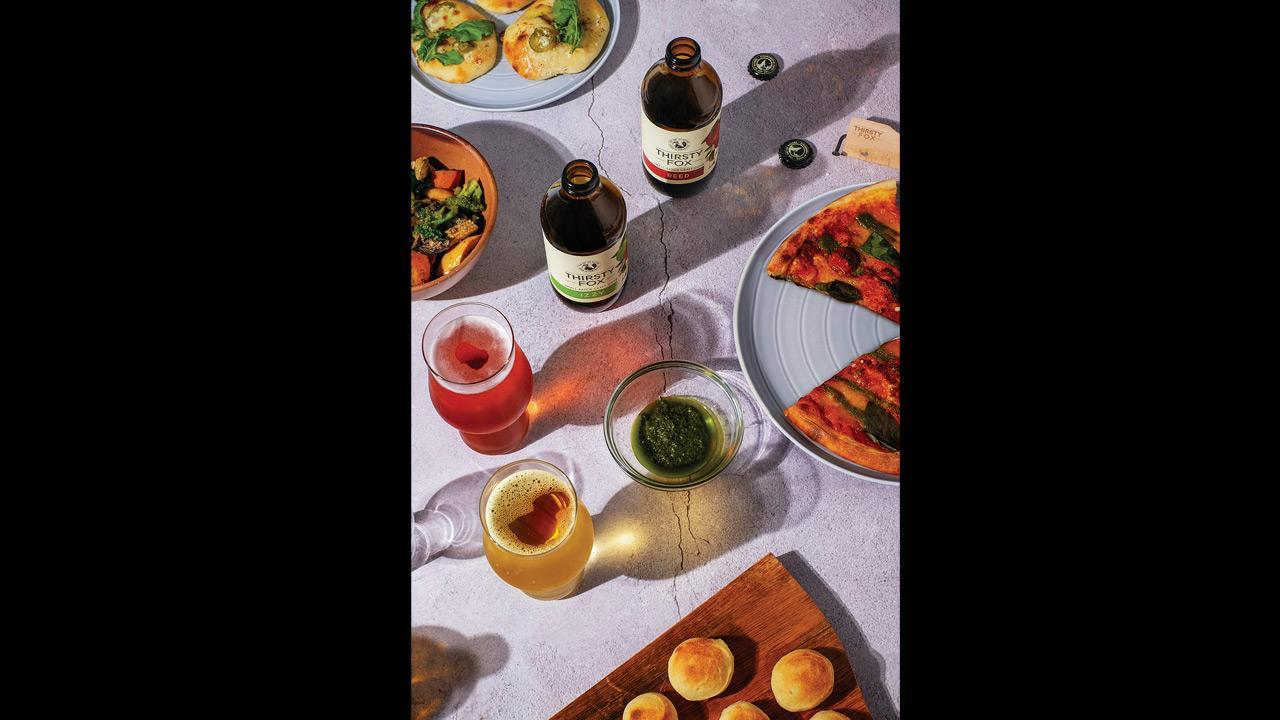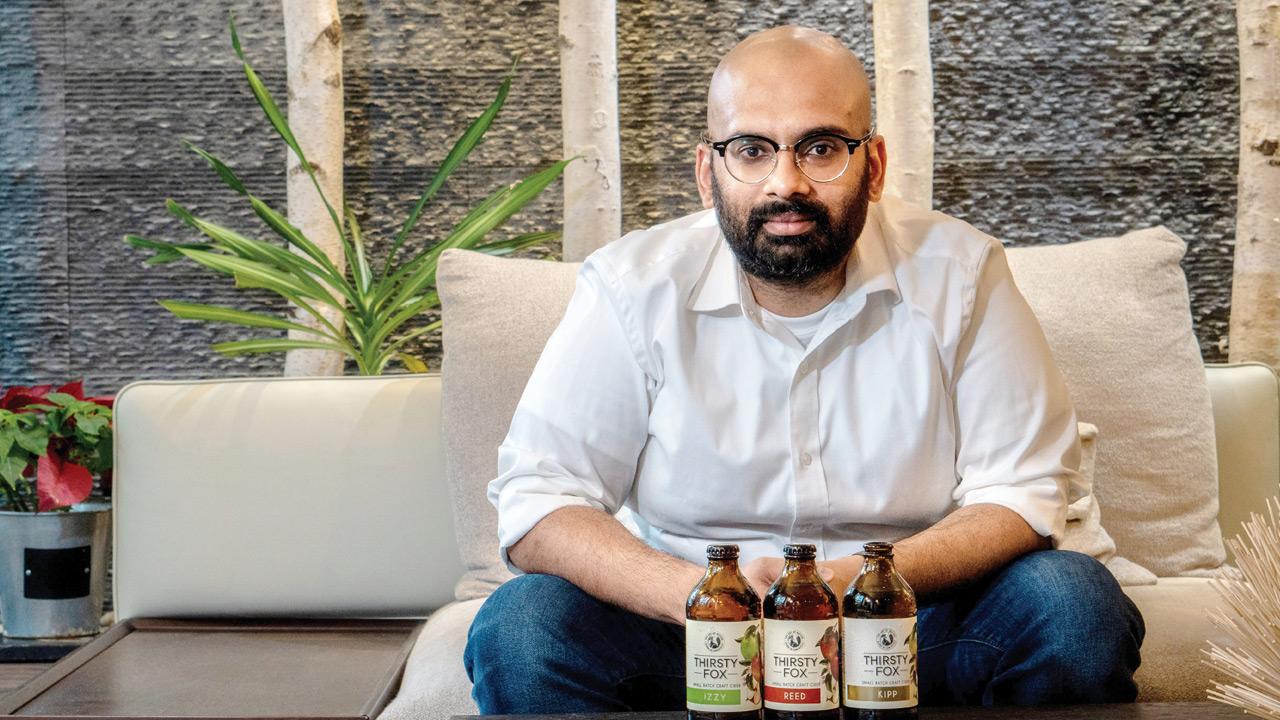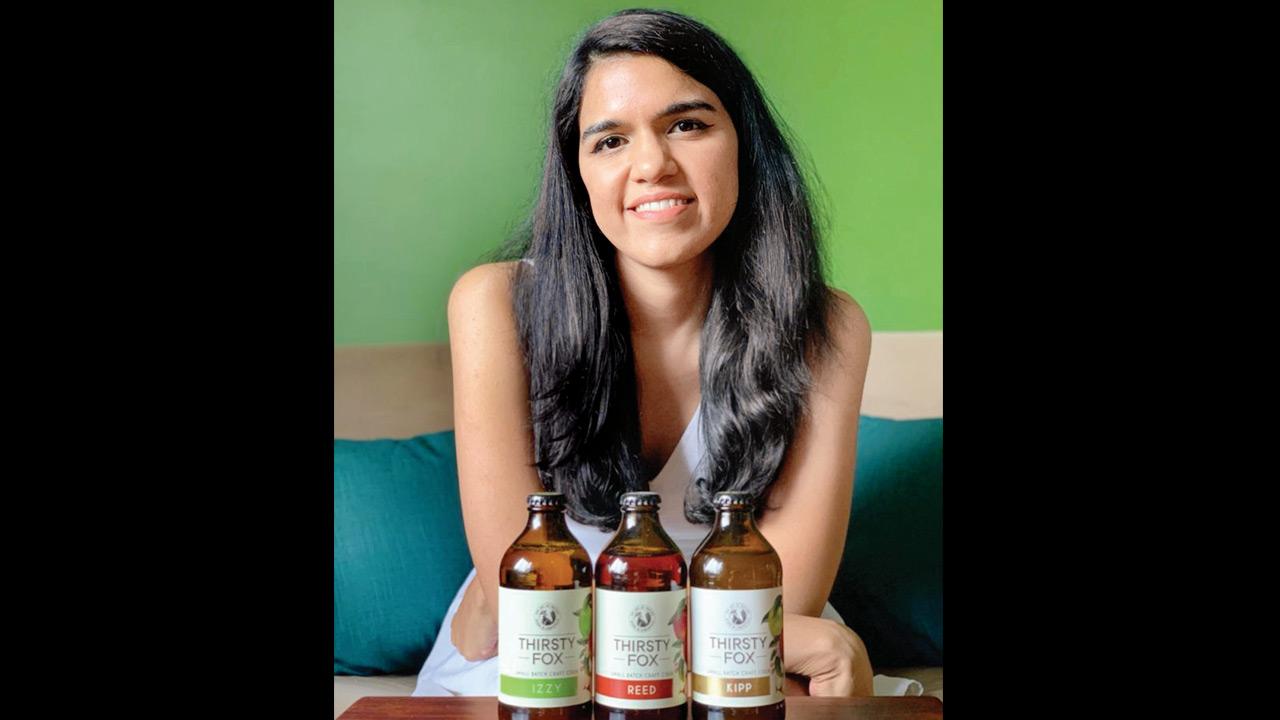A young, award-winning apple cider from Mumbai is helping drinkers appreciate the nuances of the fermented beverage

Izzy, a golden cider with a hint of citrus honey, goes well with salami, veggies, stuffed mushrooms, egg dishes and foie gras
In India, we might still be warming up to the concept of apple cider, but Thirsty Fox, a homegrown craft cider brand that launched in November 2019, is already going places. The brand won the India Cider of the year award at New York International Cider Competition 2021, and their latest creation Kipp—India’s first hopped cider—was awarded a silver medal at the event. The juicy, unfiltered beverage with a bitter-sweet complexity is made using hand-picked apples that are fermented with a proprietary blend of hops and blended with cold-pressed apple juice. The result is a cloudy, fruit-forward cider with heady tropical aroma and a lingering finish. Kipp has an alcohol content of 5.5 per cent ABV and is gluten-free and vegan. Given that it’s a relatively new category of alcoholic beverage outside the routine beer and wine, we reached out to Thirsty Fox founder Siddharth Sheth and in-house pommelier Shibani Surkund to know more.
ADVERTISEMENT

Siddharth Sheth
How are ciders different from beer, mead, and seltzers?
Surkund: Cider is an alcoholic beverage made from fermented apple juice. Just like wines are made from fermented grapes, cider uses apples as the fermentation base. Apples are then fermented using yeast, which converts the sugars naturally present in the juice to alcohol and carbon dioxide. Meads are also similar in how they are made, except now, instead of using fruit as the base for fermentation, the starting point here is honey. The rest of the process is identical to how ciders and wines are made. However, beers are produced differently, and the starting raw material is barley or malt. This is then heated, mixed with hops, fermented, and then bottled. Hard seltzer, on the other hand, is ready-to-drink alcoholic sparkling or carbonated water that usually contains natural or artificial flavouring agents.
What is India’s appetite for ciders?
Sheth: Ciders have been present in India ever since micro-breweries and craft beer began to gain popularity. Unfortunately, this also brought about the common misconception that cider is a type of beer and not a category or an individual beverage on its own. Currently, the Indian market is still in its infancy [when it comes to ciders]. However, with the growing popularity of craft drinks in India, we have noticed an emerging demand for all-natural and easy-to-drink beverages.

Shibani Surkund
What does a pommelier do?
Surkund: This is the term used for a certified cider specialist. As a pommelier, I’m responsible for educating consumers and trade about ciders, including its origin, the various kinds of ciders, production methods, and their unique aromas and flavour characteristics.
How are you educating consumers about ciders?
Sheth: Our primary focus is to develop awareness through regular consumer-facing events, cider masterclasses, and dinners. We are also actively working on training food and beverage trade professionals. Social media is another channel we are exploring to spread awareness and educate consumers by creating content on cider education, food pairings, and occasions.
 Subscribe today by clicking the link and stay updated with the latest news!" Click here!
Subscribe today by clicking the link and stay updated with the latest news!" Click here!







